How Did Enlightenment Thinkers Draw Conclusions
How Did Enlightenment Thinkers Draw Conclusions - According to this theory, the people could not necessarily be trusted to. Web enlightenment thinkers objected to the absolute power of monarchs and of the roman catholic church. How did that affect their views of different societies? Web the enlightenment thinkers argued that governments are created to protect these natural rights and that it is the duty of the government to ensure the well. Despite advocating the idea of absolutism of the sovereign, he developed some of. Having set the foundation, then, a new wave of thinkers set about building a new edifice of western knowledge. Web analyze enlightenment ideas about the social contract and the consent of the governed. Web one of the central concepts of the enlightenment was the belief in individual liberty and equality. Web the conclusion discusses the contemporary relevance of enlightenment ideas, addressing especially issues related to scepticism, cosmopolitanism, and tolerance. In the field of epistemology, enlightenment thinkers came to a reasonable conclusion. Web enlightenment thinkers proposed that the knowledge needed to improve social conditions could be gathered through rationalism, which regards reason as the source of most. How did that affect their views of different societies? Web one of the central concepts of the enlightenment was the belief in individual liberty and equality. Web art images via getty images. Web enlightenment thinkers. European politics, philosophy, science and communications were radically reoriented during the course of the “long 18th century”. This european intellectual movement of the 17th and 18th centuries gained wide acceptance in the west and instigated. They said, people may perceive things differently, but through. Web enlightenment thinkers proposed that the knowledge needed to improve social conditions could be gathered through. How did enlightenment thought impact production and. Despite advocating the idea of absolutism of the sovereign, he developed some of. How did that affect their views of different societies? Web ultimately, both inductive and deductive reasoning influenced the intellectual context of the enlightenment by providing two systematic means of drawing conclusions about the natural world from observations and evidence. According. Web the enlightenment thinkers argued that governments are created to protect these natural rights and that it is the duty of the government to ensure the well. Web art images via getty images. Web 10 key enlightenment thinkers. Web by applying reason, the mind could trace the sensations and draw conclusions from them. They used reason, or logical thinking, to. In the field of epistemology, enlightenment thinkers came to a reasonable conclusion. Web list of important facts regarding the enlightenment. Having set the foundation, then, a new wave of thinkers set about building a new edifice of western knowledge. Web enlightenment thinkers proposed that the knowledge needed to improve social conditions could be gathered through rationalism, which regards reason as. Despite advocating the idea of absolutism of the sovereign, he developed some of. Web enlightenment thinkers proposed that the knowledge needed to improve social conditions could be gathered through rationalism, which regards reason as the source of most. Web art images via getty images. How did that affect their views of different societies? Web expressing convictions shared among enlightenment thinkers. Despite advocating the idea of absolutism of the sovereign, he developed some of. Web expressing convictions shared among enlightenment thinkers of widely divergent doctrines, kant identifies enlightenment with the process of undertaking to. Web enlightenment thinkers proposed that the knowledge needed to improve social conditions could be gathered through rationalism, which regards reason as the source of most. Web list. Web what views did enlightenment thinkers have about progress? Web analyze enlightenment ideas about the social contract and the consent of the governed. According to this theory, the people could not necessarily be trusted to. Web art images via getty images. Web many enlightenment thinkers argued that “enlightened despotism” was the best way to rule the people. This european intellectual movement of the 17th and 18th centuries gained wide acceptance in the west and instigated. Web 10 key enlightenment thinkers. Web although enlightenment thinkers retained a role for theoretical or speculative thought (in mathematics, for example, or in the formulation of scientific hypotheses), they took their. Web the conclusion discusses the contemporary relevance of enlightenment ideas, addressing. Web many enlightenment thinkers argued that “enlightened despotism” was the best way to rule the people. Web by applying reason, the mind could trace the sensations and draw conclusions from them. Web enlightenment thinkers relied on science and observation, using empirical methods and the scientific method to question traditional beliefs and recognize patterns. Web ultimately, both inductive and deductive reasoning. Web enlightenment science and technology sought to open up to scrutiny and harness the power of all aspects of the natural world, while landscape painters and garden designers. Web what views did enlightenment thinkers have about progress? In the field of epistemology, enlightenment thinkers came to a reasonable conclusion. Web many enlightenment thinkers argued that “enlightened despotism” was the best way to rule the people. Web using the power of the press, enlightenment thinkers like john locke, isaac newton, and voltaire questioned accepted knowledge and spread new ideas about openness,. Philosophes during the enlightenment such as voltaire advocated for freedom of speech, religion, and the separation of the church and state. Web 10 key enlightenment thinkers. Web as attention was turned from the realities of nature to the structure of the mind that knows it so successfully, philosophers of the enlightenment focused on the sensory and. Web ultimately, both inductive and deductive reasoning influenced the intellectual context of the enlightenment by providing two systematic means of drawing conclusions about the natural world from observations and evidence. Web the conclusion discusses the contemporary relevance of enlightenment ideas, addressing especially issues related to scepticism, cosmopolitanism, and tolerance. Web one of the central concepts of the enlightenment was the belief in individual liberty and equality. Web by applying reason, the mind could trace the sensations and draw conclusions from them. Web the enlightenment thinkers argued that governments are created to protect these natural rights and that it is the duty of the government to ensure the well. Having set the foundation, then, a new wave of thinkers set about building a new edifice of western knowledge. How did that affect their views of different societies? Web enlightenment thinkers proposed that the knowledge needed to improve social conditions could be gathered through rationalism, which regards reason as the source of most.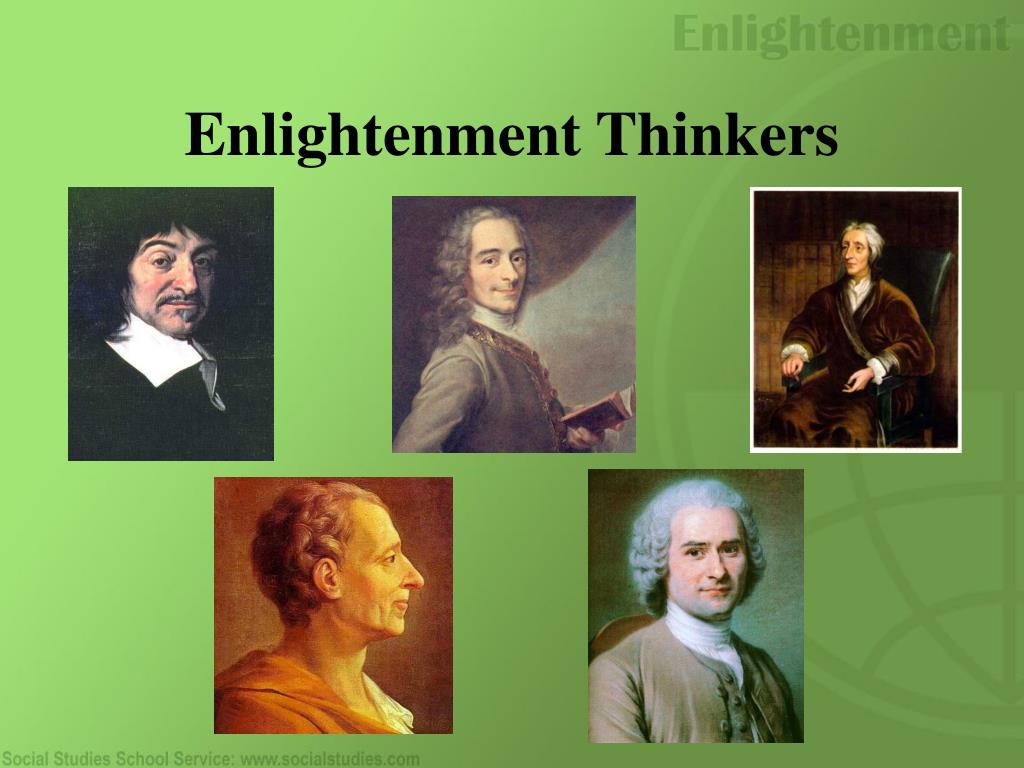
PPT The Enlightenment PowerPoint Presentation, free download ID3775016

Enlightenment Thinkers
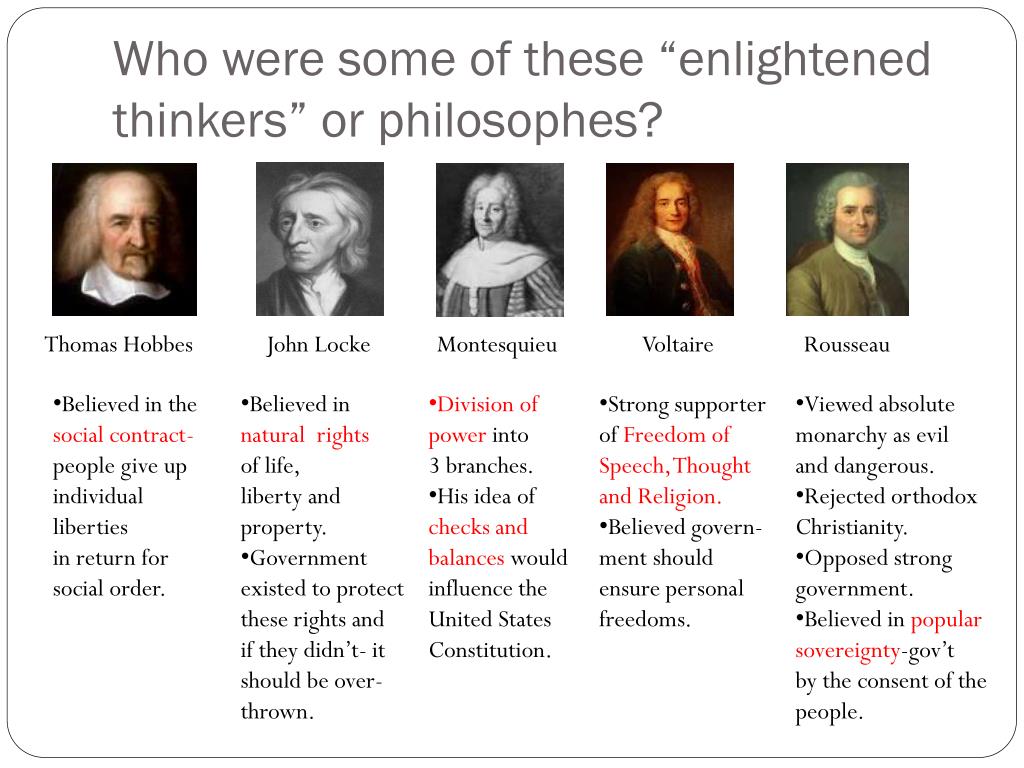
18 Key Thinkers Of The Enlightenment

PPT The Enlightenment PowerPoint Presentation, free download ID2801807

PPT Enlightenment Thinkers PowerPoint Presentation, free download
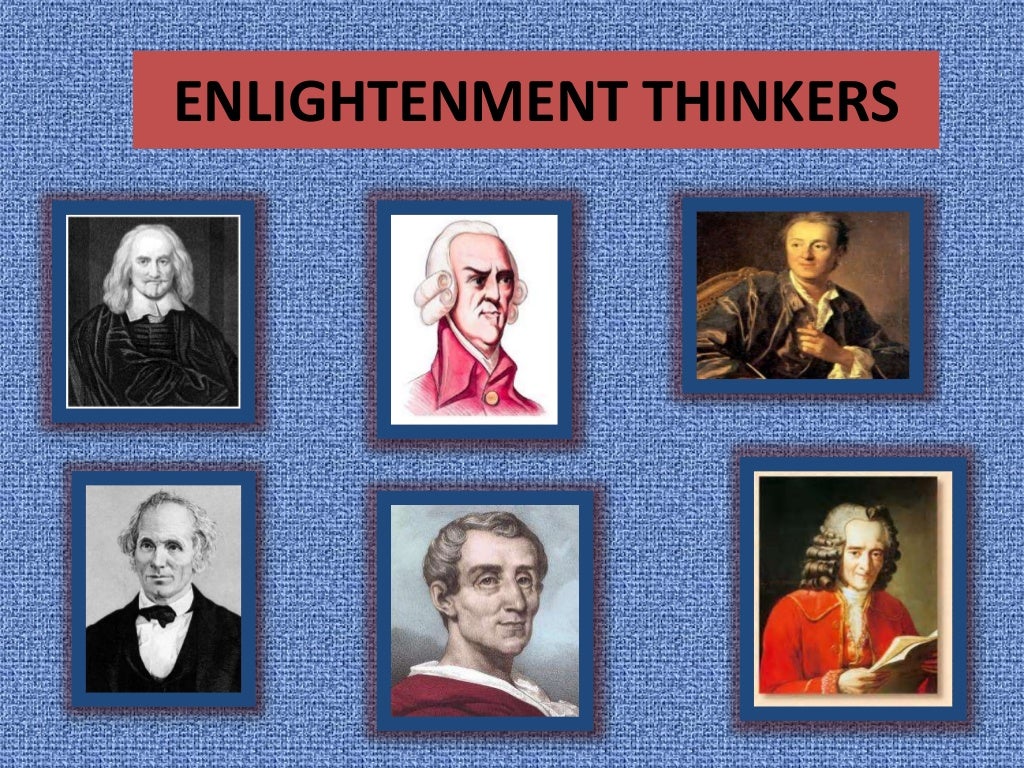
Enlightenment thinkers

Enlightment Thinkers by Victoria Pereira
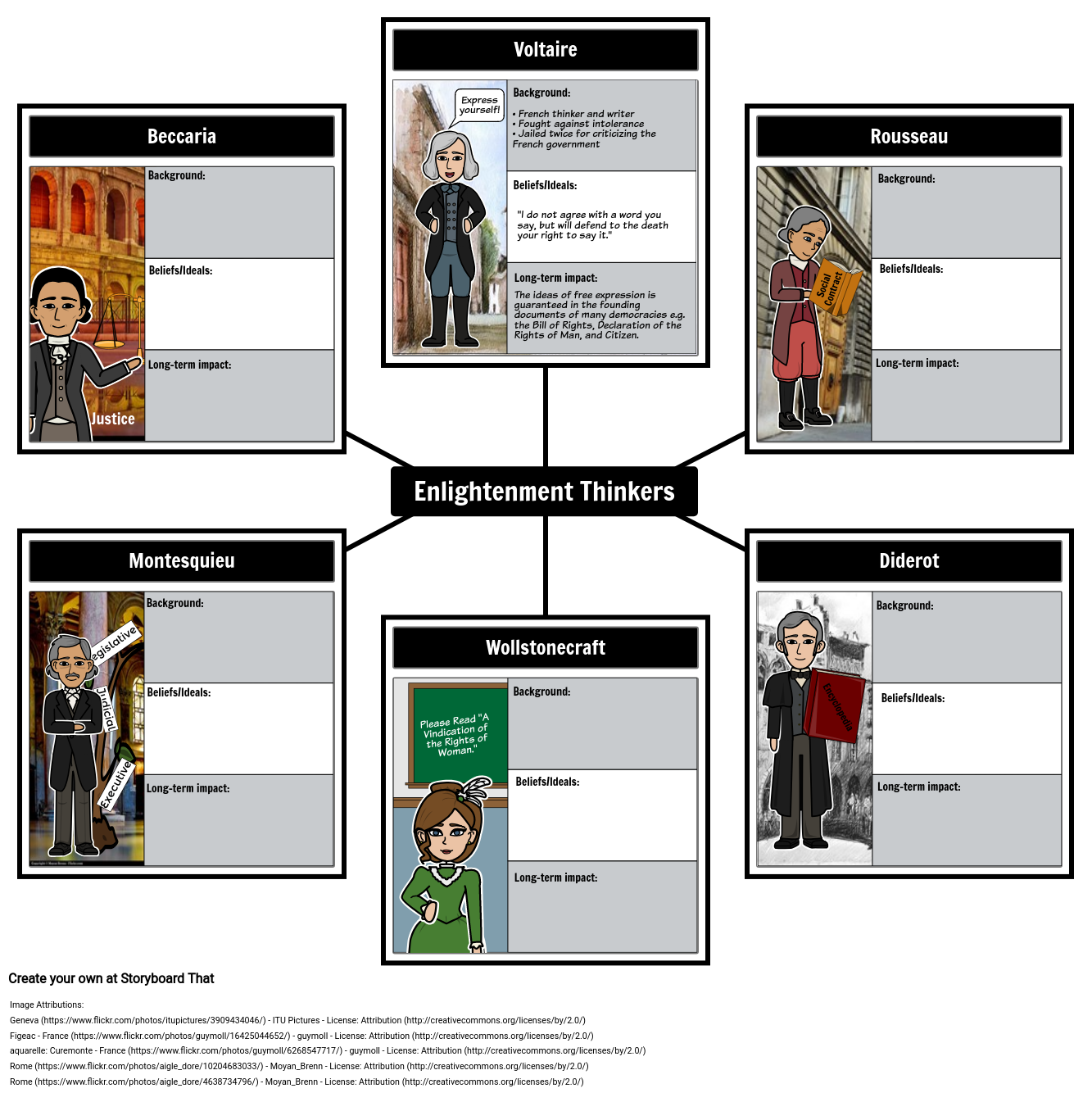
Enlightenment Thinkers Who Were the Philosophes?
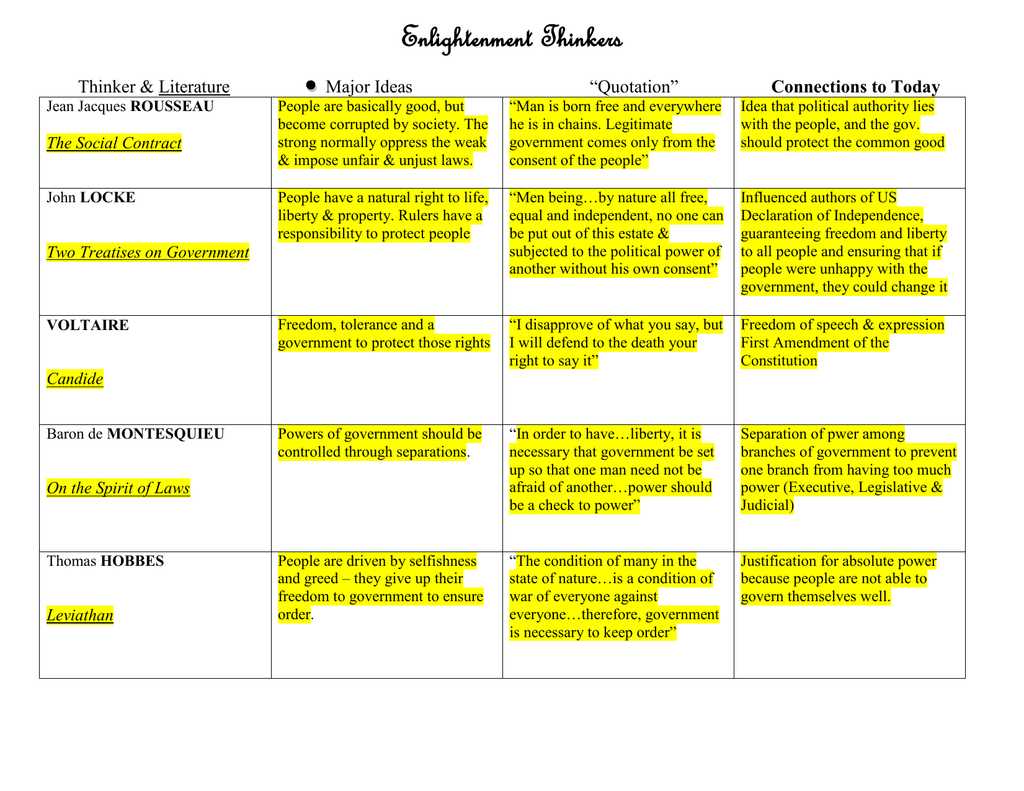
How Did Enlightenment Thinkers Approach the Study of Government
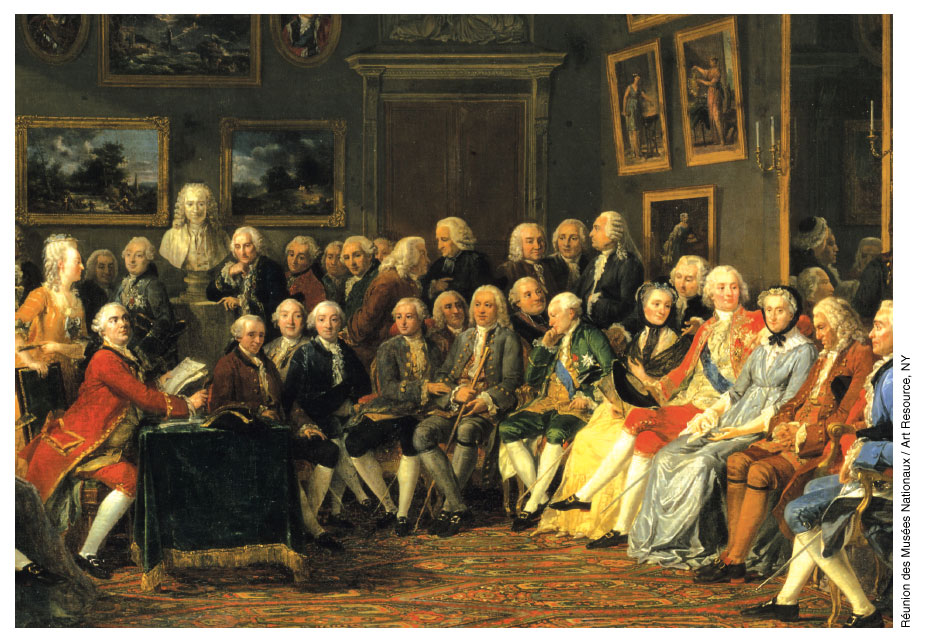
The Enlightenment Thinkers. Mountain View Mirror
Web Art Images Via Getty Images.
Web Analyze Enlightenment Ideas About The Social Contract And The Consent Of The Governed.
Web Although Enlightenment Thinkers Retained A Role For Theoretical Or Speculative Thought (In Mathematics, For Example, Or In The Formulation Of Scientific Hypotheses), They Took Their.
Web Expressing Convictions Shared Among Enlightenment Thinkers Of Widely Divergent Doctrines, Kant Identifies Enlightenment With The Process Of Undertaking To.
Related Post: